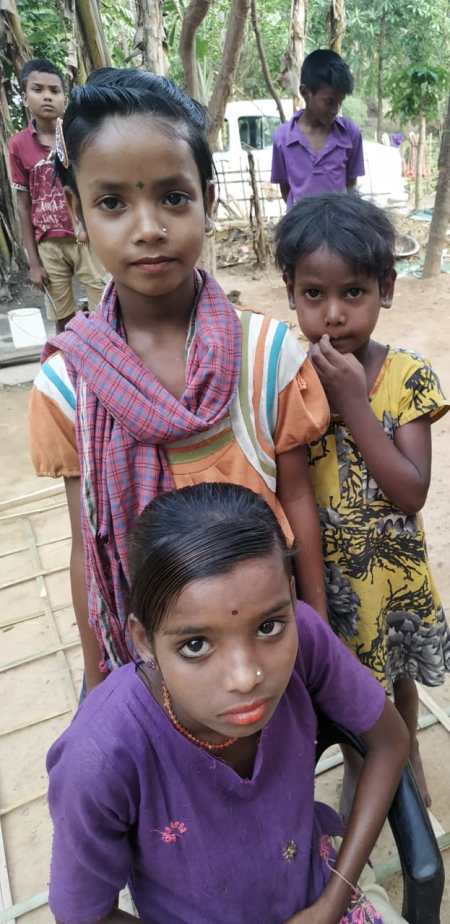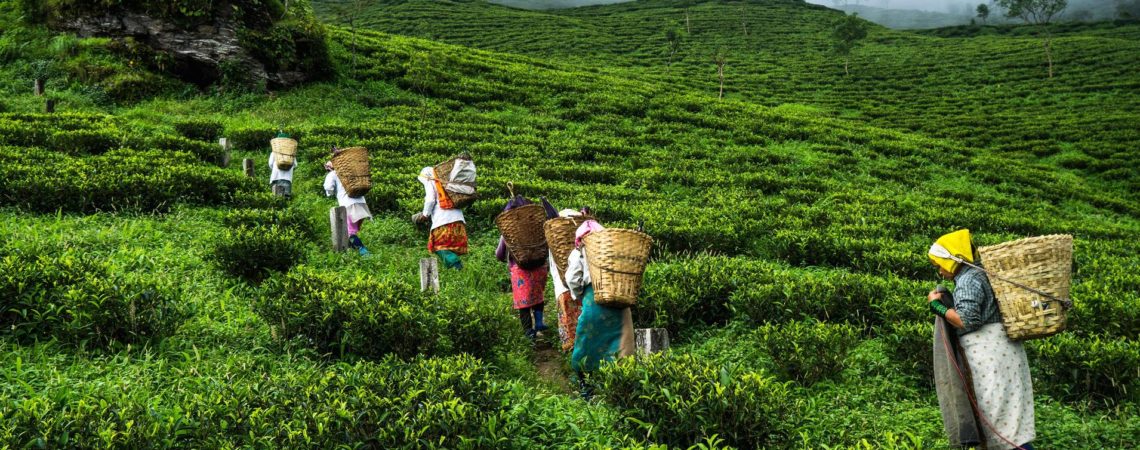.
BHRPC along with other Civil Society Organizations in Assam’s Barak Valley have come together to seek immediate action and accountability from the District Administration across the 3 districts of Cachar, Karimganj, and Hailakandi in light of the reopening of the tea plantations during the ongoing nation-wide lockdown. They submitted a Memorandum to the District Administration.
The Coronavirus (COVID-19) pandemic has infected close to 1.3 million people worldwide, with a sharp daily increase in numbers. To implement the recommended standard of social distancing, the Government of India (GoI) imposed a 21-day nation-wide lockdown beginning at the midnight of Wednesday, March 25th. Almost two-weeks after this lockdown, tea plantation workers in Assam’s Barak Valley have not been paid their wages, creating a grave crisis without income or access to food and other essential services. On April 3rd, GoI exempted tea plantations from the nation-wide lockdown, permitting 50% workers to work. The unplanned implementation of this policy decision will put Barak Valley’s 70,000 workers, across 104 tea plantations at risk of exposure to the novel coronavirus.

Assam’s tea plantation workers are a semi-skilled to skilled labour force who are paid a dismally low daily wage of Rs. 145, which is even lower than the state’s minimum wage for unskilled workers. The living and working conditions on these plantations have always been abysmal, with disproportionately high rates of malnourishment and anaemia. The disparagingly poor health conditions on tea plantations, coupled with very poor accessibility to healthcare, makes Barak Valley’s tea plantation workers a highly vulnerable and at-risk group in the COVID-19 pandemic. Women, who form over 60% of the workforce on Assam’s tea plantations, will be disproportionately affected by the unplanned implementation of this exemption. In many cases, since they are the sole bread-winners of their families, the burden of going to work to earn a living is higher on women. Further, plantation workers in Barak Valley, especially women deserted by their husbands, do not possess ration cards, and therefore don’t receive any ration. The lack of secure land tenure among tea plantation workers also increases their vulnerability.
During this pandemic and hunger crisis, it is critical that plantations and governments undertake coordinated efforts to secure the health and life of plantation workers by ensuring that every single worker has improved, adequate and quality access to basic necessities including food and health care. Therefore, we demand the following urgent steps be taken immediately to protect the lives of Barak Valley’s tea plantation workers:
- Order immediate release of all past dues to workers, including continued payment of wages for the period of complete lock-down on tea plantations.
- The
order dated April 3, 2020 passed by the Ministry of Home Affairs,
Government of India, granting exemption to tea plantations from the
ongoing lockdown, should only be enforced after adequate precautionary measures are put in place. These
measures must include:
- Identify adequate amounts of quarantine facilities on every plantation, including, but not limited to using existing infrastructure like labour clubs and space on management residential plots, for this purpose.
- Immediately devise and implement a strategy to widely disseminate information about the COVID-19 pandemic, informing workers about the scale of the pandemic, the risks it poses, precautionary measures, and an emergency plan in case of the spread of the virus on the plantation in local languages.
- Provide water and antiseptic soap at regular intervals on plantations.
- Procure enough numbers of cloth masks and gloves to provide to workers for wearing while working on the plantations.
- Complete universalization of ration through the Public Distribution System for a period of at least 6 months. People without ration cards should be able to get subsidised food. Further, direct plantations to immediately supply ration to workers for the period of the lockdown.
- Ensure
proper implementation of the PM
Garib Kalyan Package announced by the Finance Minister, to help the
poor fight coronavirus.
- Specifically, ensure implementation of the Garib Kalyan Ann Yojana.
- Ensure workers have accessibility and information on how to withdraw pension funds, announced under the Package. Comply with the advance payment of PF to workers.
- Ensure continued and adequate implementation of all other schemes and entitlements of the State and Central governments.
- Ensure and monitor that plantations strictly comply with existing laws, policies, schemes and entitlements, to ensure safe and healthy working and living conditions for tea plantation workers. This includes ration, and different kinds of direct benefit transfers to the poor like under maternity benefit schemes, following safety measures on plantations, and proper functioning of plantation hospitals.
- All Direct Benefit Transfers must be made as cash payment to workers, following proper social distancing norms, through the Anganwadi workers. The fractured banking systems and unavailability of ATMs on plantations would mean that workers are unable to use the DBT in a lockdown.
- Plantations must provide health insurance and additional wages as hazard pay for workers given the dangerous circumstances that they are being forced to work in.
- The government must ensure provision of dignified health care. All health facilities, including Plantation Hospitals, PHCs, CHCs and Medical Colleges are ready must be fully equipped to deal with COVID-19 cases, including procuring sufficient testing kits, medication, ventilators and other medical equipment and providing the necessary personnel protective equipment for healthcare workers, including community health workers like ASHA workers. All private hospitals should be directed to provide free treatment. There must be regular and continuous audit of all plantation hospitals by the health and labour departments and strict action against plantation management for any violation.
- If needed, provide adequate relief packages to companies to safeguard workers from losing pay, health benefits and other necessary entitlements to mitigate the hardship during this period.
The failure to take the above steps will aggravate the plight of tea plantation workers, including death of workers owing to COVID-19 and starvation. The failure to secure rights and basic necessities for workers is a grave violation and a possible economic slowdown does not justify putting their lives at the forefront of a global health pandemic.
Thank you for your consideration.
Best,
- Taniya Sultana Laskar
Barak Human Rights Protection Committee,
Kachari Masjid Complex, Silchar, Assam
[Phone No.- 7576874498; [email protected]]
- Nirmal Kanti Das
Majori Sramik Union, Assam
[Phone No.- 9435238753; [email protected]]
- Manas Das
Forum for Social Harmony, Assam
Silchar, Assam.
Phone No. – 9435522567
- Mrinal Kanti Shome
Asom Mojuri Sharamik Union
Lane No. 13, House No.18,
1st Link Road , Cachar, Assam.
[Phone No. – 9854067226; [email protected]]

Leave a Reply